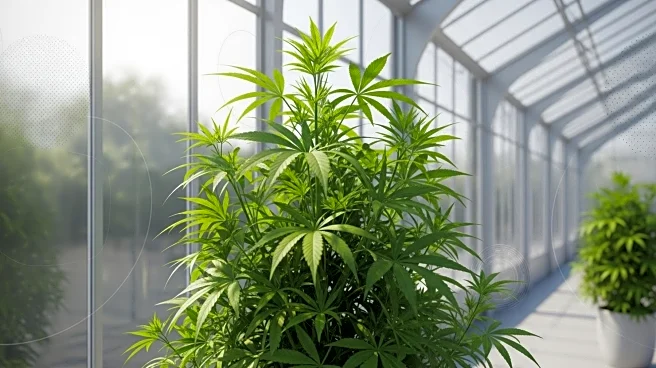What's Happening?
Richard Zaltman, CEO of EIT Food, has noted a shift in the food technology sector from focusing solely on sustainability narratives to prioritizing business resilience and unit economics. This change is driven by the impact of tariffs, particularly from the U.S., which are prompting companies to localize their sourcing to avoid trade barriers. Despite the declining emphasis on sustainability narratives, many companies remain committed to sustainable practices such as reducing scope-3 emissions and investing in regenerative agriculture. The food tech industry continues to innovate, with advancements in measurement technology, AI, and robotics addressing emerging challenges.
Why It's Important?
The shift from sustainability narratives to business resilience reflects broader economic pressures and the need for companies to adapt to changing trade environments. Tariffs have introduced uncertainty, affecting global supply chains and prompting companies to rethink their sourcing strategies. This evolution in focus could lead to more robust business models that integrate sustainability as a core component rather than a peripheral concern. The continued investment in technology and sustainable practices suggests that while the narrative may be changing, the commitment to environmental goals remains strong, potentially leading to more sustainable and resilient food systems.
What's Next?
As companies adjust to the new trade realities, further localization of sourcing and investment in technology are expected. The food tech industry may see increased collaboration between startups and established companies to leverage AI and robotics for efficiency and innovation. Stakeholders, including investors and policymakers, will likely monitor these developments closely, assessing the balance between economic resilience and sustainability commitments. The ongoing adaptation to tariff impacts may also influence future trade negotiations and policies, as industries seek stability and predictability in global markets.
Beyond the Headlines
The shift in focus from sustainability narratives to resilience may have ethical implications, as companies balance economic pressures with environmental responsibilities. This transition could redefine corporate accountability, emphasizing long-term sustainability integrated into business operations. The role of technology in driving this change highlights the potential for innovation to address complex challenges, such as climate change and resource scarcity, within the food industry. As companies navigate these dynamics, the integration of ethical considerations into business strategies will be crucial for achieving sustainable growth.









